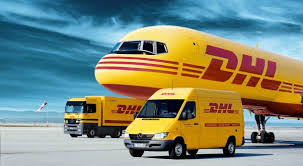A new insight has been given by leading Maritime industry expert and President of the National Council of Managing Directors Licensed Customs Agents (NCMDLCA), Lucky Amiwero.
In an interview in Lagos, the shipping mogul linked the degradation of the scanning systems to Customs complacency and poor knowledge how scanners work after the duration of the core investor, Destination Inspection Group.
He said “Today, our scanners are not working,” because Customs failed to maintain the scanners transferred to them on the expiration of the Destination Inspection contractor in 2013”.
According to him, the major challenge that collapsed the scanning systems was lack of maintenance on the side of Customs because when the contractor was handling the same scanners, they were all working.
Amiwero lamented poor conditions of the scanners and further expressed worry on the danger to facilitation of trade at seaports now which is one of the core duties of Nigerian Customs.
Explaining more on how the problem started, the leader of managing directors of clearing agents groups said “When the scanners were bought by the Destination Inspection firms under the Olusegun Obasanjo administration, it was to be operated under a Build, Operate, Own and Transfer basis (BOOT)”.
“The scanners were to be transferred to government at the expiration of the Destination Inspection contract which came to an end in 2013. The scanners were supposed to be transferred to the Customs through the Ministry of Finance because it was that ministry that oversaw the scanners contract with the Destination Inspection firms.”
“By virtue of this contract entered into by the Federal Government and the Destination Inspection firms in 2006, there is an expired six months contract after transfer which ought to cover maintenance and labour. What this six months clause after transfer of the scanners means is that the Destination Inspection firms will be around for another six months to provide labour for the maintenance of the scanners.
“However, that was not implemented. The scanners were hurriedly taken over by the Customs in 2013. The transfer of the scanners from the Destination Inspection firms to Customs was not handled professionally but politically.
“The six months clause states that if there is a software error on the scanners, the Destination Inspection firms will replace it. It also states that if there is any maintenance, the Destination Inspection firms will also do it. All of this was in the six months clause of that contract.
“There is need for government to investigate how our scanners got mismanaged. Government should set up a committee to look into this. Without scanners, there can never be trade facilitation at the ports. Scanners are one of the components of trade facilitation. This was stated at the World Customs Organisation (WCO).”
“The Customs took over the scanners politically and not professionally. The initial contract signed by the Federal Government and the Destination Inspection firms in 2006 says that after seven years, the scanners will be handed over to the Customs.
Amiwero disclosed further that there was a clause in that contract which says that the Destination Inspection firms will stay around for another six months to provide labour for the maintenance of those machines. According to him, “That was not done and that is why the scanners, which Nigeria bough for billions of tax payers money have broken down at the seaports”.









